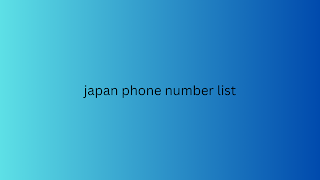A good search engine is not enough
Posted: Sun Dec 22, 2024 5:10 am
When do users search and when do they navigate?
In the digital world, a distinction is made between so-called hunters and browsers . Hunters go purposefully looking for answers and browsers click around and look until they find the right information. Practice shows that users fall into both categories, everyone uses the search engine and everyone uses some form of navigation. But when do users search and when do they navigate?
In the case of a specific request for information, users are more likely to use the search bar. A specific manual for a tool or information about a leave scheme? There is a good chance that this will be done via the search engine. However, if they are looking for more information or are orienting themselves, then using the navigation is self-evident. Only if that does not yield what they are looking for, the search bar is their (emergency) solution.
Users cannot search properly
Unlike Google, search engines on a social intranet do not always deliver the desired search results. In many cases, this is not directly due to the search engine, but to the way of searching. Searching is a skill in itself and many users are not good at it. They have little patience and assume that the information they are looking for will magically appear at the top of the search results.
In the age of Google, you would expect users to become more experienced in composing search queries, but the opposite is true. Search queries remain too vague and if the first search is not japan phone number list successful, the next ones often are not either.
The first page of results is essential. If the information you are looking for is not there, there is a good chance that the search will be abandoned.

Setting up metadata is therefore important, this ensures that the right results quickly come up. When setting up, ensure that the same information can be found with different search terms. For example, also include synonyms and (system) names in tags, so that a manual for the HR system can also be found with terms such as 'work instruction', 'AFAS' and 'Exact'.
In addition, link knowledge themes and expertise to (content) pages and profiles. This way, a search query will not only find information, but also people who can help the user with their question. Clear and consistent agreements around content management are essential to increase findability.
Search tips to improve your search
I just mentioned it: good searching is a skill in itself and not everyone is capable of it. Giving search tips to search better is another way to support users in their searches.
In the digital world, a distinction is made between so-called hunters and browsers . Hunters go purposefully looking for answers and browsers click around and look until they find the right information. Practice shows that users fall into both categories, everyone uses the search engine and everyone uses some form of navigation. But when do users search and when do they navigate?
In the case of a specific request for information, users are more likely to use the search bar. A specific manual for a tool or information about a leave scheme? There is a good chance that this will be done via the search engine. However, if they are looking for more information or are orienting themselves, then using the navigation is self-evident. Only if that does not yield what they are looking for, the search bar is their (emergency) solution.
Users cannot search properly
Unlike Google, search engines on a social intranet do not always deliver the desired search results. In many cases, this is not directly due to the search engine, but to the way of searching. Searching is a skill in itself and many users are not good at it. They have little patience and assume that the information they are looking for will magically appear at the top of the search results.
In the age of Google, you would expect users to become more experienced in composing search queries, but the opposite is true. Search queries remain too vague and if the first search is not japan phone number list successful, the next ones often are not either.
The first page of results is essential. If the information you are looking for is not there, there is a good chance that the search will be abandoned.

Setting up metadata is therefore important, this ensures that the right results quickly come up. When setting up, ensure that the same information can be found with different search terms. For example, also include synonyms and (system) names in tags, so that a manual for the HR system can also be found with terms such as 'work instruction', 'AFAS' and 'Exact'.
In addition, link knowledge themes and expertise to (content) pages and profiles. This way, a search query will not only find information, but also people who can help the user with their question. Clear and consistent agreements around content management are essential to increase findability.
Search tips to improve your search
I just mentioned it: good searching is a skill in itself and not everyone is capable of it. Giving search tips to search better is another way to support users in their searches.